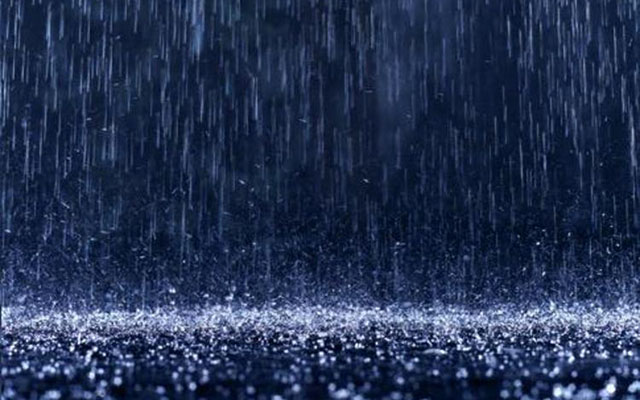November, the month of refreshing rains


November has arrived, the Month of the Goat, everyone is preparing for the summer cropping season and God has blessed us with the first rains
Dr Sekai Nzenza on Wednesday
After the October and early November hot spells, the rains came pouring down in our village on Sunday. I had only just sat down in the kitchen hut near the fire when there was a big flash of lightning followed by a spectacular thunderstorm. “Ah, ndimi mauya nemvura VaNyandoro,” said Bokina, the fencer, who was sitting very close to the fire, eating roasted corn. He was calling me by the name of my great grandmother, bestowed upon me when I was eight.
Our neighbour Jemba, my brother Sidney and Mbuya Magirazi were all in the kitchen hut. I had arrived alone, in the absence of my usual companions, Reuben and Piri. This time, I had done a solo drive from Harare to the village. I often enjoy these drives on my own so that I can smell, see and digest the beautiful scenic countryside that is called Zimbabwe. Driving from Hwedza to Save River, I saw the clouds gather over Rusape, moving slowly over to the Romorehoto Mountains. I knew that these clouds would soon move towards Hwedza. Without doubt, rain would reach me within the hour, hopefully before I arrive at the village homestead.
But I was not rushing. I stopped by a big muchakata tree not too far from the main road. This tree is sacred, just like all the muchakata trees around Zimbabwe. You must not cut it or use it for firewood. Doing so will anger the ancestors. I passed by this tree in early September when my cousin Piri and I saw people gathered around it. They were performing a mukwerera ceremony. Piri said we should stop. I protested. But she did not listen to me.
Mukwerera is the ceremony to ask for rain from God, Mwari Musiki, Nyadenga, and God in the Highest. Before the white man came to this country, and long before Cecil John Rhodes chose Matopos as his burial place, prayers for rain were held at Njelele shrine in Matopos, near Bulawayo. People travelled with zviyo, the red millet, from all over the country. They walked from as far as Buhera, Gutu, Mutare and from up north in Muzarabani. Beer was brewed by the older women who no longer slept with men.
Near Matopos, there is a perennial spring where the people took calabashes of sacred water and travelled back to their homes, believing fully that Mwari had listened to them. When November arrived, the month of the Goat, they prepared seeds to plant with the hope that God will bring them rain. By the middle or end of November, the sky looked angry. The skies opened and blessed the dry earth with rain. Dust and debris was washed away and the ground was soaked with rain. The earth was ready to receive planted seeds.
When I was growing up the elders also observed mukwerera. For seven days, my grandmother, Mbuya VaMandirowesa and all the female elders prepared beer for the mukwerera. Mukwerera is now rare due to Christianity, yet it is one of our oldest ancestral rituals. This ceremony has been here long before the missionaries came to tell us about Jesus. At that time, we prayed to Mwari, the same Mwari we still worship today. When we stopped by the muchakata tree where people were gathered for the mukwerera ceremony last month, I told Piri that we did not know anyone there. “The villages around here are so far away from us,” I had protested again. But Piri said we were the same people and possibly related to someone at the mukwerera ceremony. In Zimbabwe, everyone is your relative either by totem or by marriage. She said we must ask for rain on behalf of everyone, Christian and non-Christians, sinners and non-sinners alike. The rain falls on everyone’s field regardless of their spiritual belief. Mwari is generous to us all and does not discriminate.
I agreed and stopped the car. We parked a few meters away and then we carefully wrapped our cloths around our bottoms and covered our hair, as a way of respect for the ancestral places of worship around the muchakata tree. There were clay pots of beer placed around the tree. Some people acknowledged our presents with smiles. An elderly lady was talking to the ancestors saying: “Honaika, madzitateguru. Tisu vana venyu tauya pano. Zuva rapisa. Tinokumbirawo mvura. Motisvitsirawo kuna Musikavanhu:” We have come before you, our ancestors. The sun is hot. We ask for rain. Deliver our message to God. The people clapped and we did the same. Then there were more words spoken to the ancestors. Beer was shared from a gourd between the elders closest to the tree. Some of it was poured on the ground. We ululated with the women.
One lady sitting next to us then asked who we were. I hesitated to answer. But Piri was quick to say we were vanaChihera, of the Mhofu totem. Piri explained that we could not have possibly passed a mukwerera ceremony without giving support. The lady nodded in agreement and said an order from above must have been given to us to stop. “Vadzimu vati mirai pano,” she said, meaning the ancestral spirits had told us to stop and participate in the ceremony. Piri nodded in agreement. I did not know for sure whether an order had been given to us. I think it was Piri being curious more than anything else. But what I know is that we were merely following an ancient ritual. We had faith in mukwerera and we believed that God, Mwari vari Kumusorosoro, the Holy Spirit, Mudzimu Unoyera, would hear us. Beyond that, I knew nothing, except that God was there and He would give us rain in November.
Mukwerera was a ritual that bound us together as a people.
After the mukwerera ceremony near the Save River last month, Piri and I had proceeded to the village. The following day we held a nhimbe or communal working bee to spread manure in the fields. We always do this before the rains come. The people came from surrounding villages, each one with their hoe and others with shovels. They dug and shovelled the manure into the scotch cart which was then pulled by four steers. They made manure pyramids in the fields and then spread it all on the fields. By mid-morning, the men had ploughed two fields. When the sun was beating hard and the cicadas were so loud, we sat under the big mulberry tree and shared plates of sadza, fried chicken and cabbage.
At sunset, we sat in the golden glow of the sun shelling the ground nuts. The women shared the non-alcoholic mahewu while men drank the highly intoxicating chandada beer. Everyone said the rains would come in early or mid-November. We were hopeful as we have always done season after season. On Sunday night, as I slept in the village, I listened to the gentle sounds of the rain falling on the grass-thatched rondavel. I heard frogs singing in the valley. In the morning, there was a refreshing slight drizzle of rain.
Jemba said; “If the sun shines later, tsambarafuta will come out and Madzibaba Ishmael will catch so much fish in the Save river.” Tsambarafuta are the tasty black flying ants which come out only once after the rains. I said we should wait and see. These days, the environment has changed so much. We can never know what natural food is still available to us from the bush or from the river. Just before midday, we saw Madzibaba Ishamael arrive with a big red bucket on his right shoulder. Madzibaba lives along the Save river. He climbs two steep hills, mikwidza, to get to our homestead. He placed the bucket on the ground and we could smell fish. He opened the sack that was carefully placed inside the bucket and then we saw the biggest catfish, miramba, that we had not seen in years. There were fifteen of them. “My trap had more than 50 this morning, but I could not carry it all,” said Madzibaba. The fish were so fresh and bloody from being hit on the head. Madzibaba said during the dry season, miramba hid in the muddy river. When the rains come, as they did in the valley last week, the fish come back, ready to spawn. Madzibaba normally smokes them over the fire before travelling through the villages selling his catch.
As we examined the long catfish, we heard school kids laughing and screaming in the fields and along the foot path. They were running around chasing flying tsambarafuta. These tasty black big insects came out in their dozens, ready to be caught, roasted and eaten. I enjoyed eating a few salted ones. They tasted like shrimps or prawns.
“Mvura ya November inouya nemakomborero,” Jemba said. “Kunyangwe zvikaoma sei. Mwari havatikanganwe.” The November rains bring us good fortune. Despite everything else, God does not forget us.
Dr Sekai Nzenza is an independent writer and cultural critic.









Comments